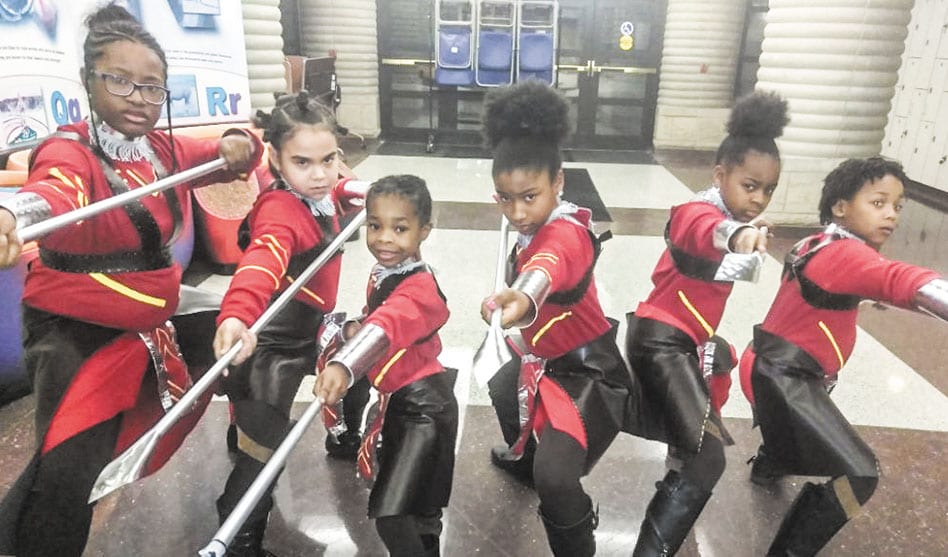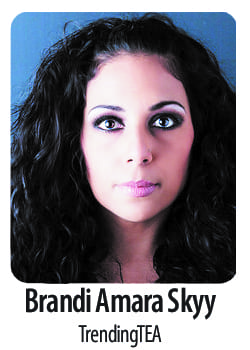
 I’ve seen Black Panther twice. The second time was better than the first. And after my second viewing, I can honestly say I love everything about this movie — the writing, the characters, the actors’ portrayal of them, the music, directing, the fact that almost everyone from the cast to the producers to the costume designers were black … EVERYTHING!
I’ve seen Black Panther twice. The second time was better than the first. And after my second viewing, I can honestly say I love everything about this movie — the writing, the characters, the actors’ portrayal of them, the music, directing, the fact that almost everyone from the cast to the producers to the costume designers were black … EVERYTHING!
Of course, there are those people who didn’t like it for their own personal reasons. But most of those people — I’m just going to come right out and say it — weren’t black.
Not that you have to BE black to appreciate the movie itself, but I do believe you have to live, know and experience life as a minority (whether its as a black, brown, native, female, queer) or be woke (and not in a trendy kind of “I stay woke” way, but in a way where you engage, daily, in questions that challenge the status quo and your own personal beliefs) to fully understand its social-political-cultural significance.
Because it is significant.
The way the black community showed up and showed out for the premiere is significant. The way they came out of the movie beaming and full of joy because they finally saw themselves onscreen, represented in some way other than the victim, the prisoner, the slave, or the killer, is significant.
I understand their elation because as a brown female I’m still waiting to see my gente represented in a non-Pixar and superhero bad ass kind of way.
 We, the queers and LGBTQ community, are eagerly awaiting our empowering silver screen debut too.
We, the queers and LGBTQ community, are eagerly awaiting our empowering silver screen debut too.
But what is also significant is how the rest of society — read: those who have traditionally held the power, i.e. white heterosexual males — are responding. Conservative (white) sites like the Western Journal are claiming the movie is “racist.” White supremacist trolls on Twitter made up fake news that white people were getting beat up outside the movie premiere.
The fact that there are still factions of Americans who are making up REAL false news about blacks to perpetuate and fuel negative stereotypes only further proves WHY the Black Panther movie was needed and socially significant.
But I get why mainstream white America is upset. They don’t like NOT being the center of attention. Because let’s face it, since July 4, 1776, it’s been all about them. And they aren’t used to seeing someone else (again read not white, male or straight) as the superhero with the potential to save the world.
SPOILER ALERT: It’s kinda like the Easter egg after-the-credits-scene where T’Challa tells the United Nations council that Wakanda will no longer withhold their resources to which an unnamed leader (who just happens to be a white male) responds, “What does a farming country have to offer us?”
That is ALL of mainstream white America right now because white America is not used to seeing the value of black culture or resources unless they are trendy, whitewashed, and appropriated, a la Kardashian style.
The truth is mainstream white America is uncomfortable rooting for everybody black (or anybody who is not like them), and the fact that a black movie named Black Panther is running the world’s box offices, blowing past the superheroes that look like them and helping black and other minority communities remember and reclaim their power scares the shit out of them.
And it should. Because this generation is finally understanding and experiencing what the Civil Rights generation understood — that we the people hold the real power and when we ALL come together, we far outnumber those in said power.
Black Panther’s release into the world was divine timing: Las Vegas. Pulse. Treyvon Martin. TeeTee Dangerfield. Sandra Bland. Parkland, Fla. The list goes on and on.
And what Black Panther proves is that the individual — when supported by the communal whole — can change the outcome and the fate of a country. It’s the fictionalized version of what is now happening in America: Individuals speaking out being supported by companies like Dick’s Sporting Goods and Walmart (among others) creating change.
It’s not our government. It’s not Trump. They aren’t doing anything. It’s us. It’s we. It’s the people.
And the real tea is: Black Panther came out at the exact moment we — black, brown, native, queer, other — needed it to remember that we hold the power to create change. That our voice paired with our ability to act is the real Vibranium.
It came at the exact moment that we needed to see that our otherness is our power. That we can come together as diverse beings and sometimes-warring tribes and, for the sake of the greater good, not engage in combat.
It came out at the exact moment that women needed to see themselves as beautiful and powerful — and not in some flowing-long-hair-corseted-underwear-wearing kind of way, but rooted in our own self-sourced and cultural greatness.
It came out at the exact moment that there needed to be a movement. And I, for one, am ready to see where this movement leads us. #Wakandaforever!
Brandi Amara Skyy is an award-winning writer and drag artist. You can find out more about her and all her projects at BrandiAmaraSkyy.com or @brandiamaraskyy on Twitter and Instagram.

Awesome, Brandi! Bravo!
Thank you so so much Tracy!